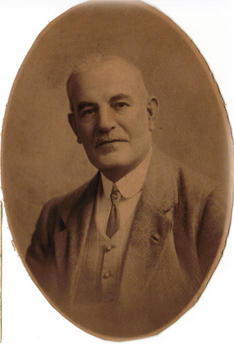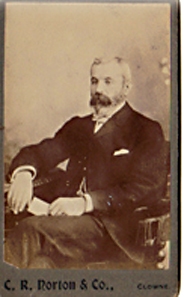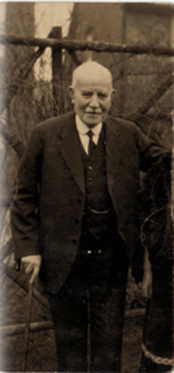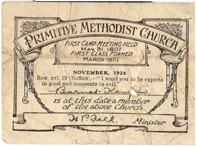
Memoir by Barnet Kenyon M.P. from The Derbyshire Times, 1925
As I look back upon the hardships of my early days I cannot help thinking that the folk who live in 1925 have a great deal to be thankful for. I am not saying, of course, that there is nothing to be remedied or that England is a Paradise on earth. Far from it. There is much to be done before England becomes the “green and pleasant land” that the poet has written of, but I do say that the workers today have a better lot in life than was the case when I was young. When I tell you that I was 28 and could barely write my own name you will realise in a moment the handicap of the workers children in those days.
But I suppose I had better begin at the beginning. My father was a quarryman and my mother’s maiden name was Ann Anson. I was born at South Anston on the fringe of Yorkshire in August 1850. I was the third of five children, and as it was just after the Hungry Forties we children had a hungry time of it.
I never had a day’s schooling. There were only a couple of dame schools in the village, and it was only possible for about one child in five to get such education as was to be obtained at those schools. I remember there were three good Sheffield women, who were very generous, and made it possible for many poor children to have a little schooling. I was not one of the lucky lads, and at the age of 7 ½ I began work in the quarries.
Naturally, my parents were not anxious for me to go to work so early, but there was nothing else for it, the 6d. a day I could earn made a lot of difference. Three shillings a week seemed a fortune to us, because my father was only earning 15s. a week, and flour was 4s. 6d. a stone. My dear mother was an excellent manager, and, poor thing, she used to say she could make twopennyworth of liver go as far as some people could make a joint of meat. We used to mix the flour with bran in those days.
My job at the quarries was to fill a wheelbarrow with the stones that the men had broken. Limestone is cold to handle at any time, but on a frosty morning it is no joke. One particular morning, when I had been on the job about four years, my little hands were absolutely numbed with cold. So I put one hand in my pocket to warm it, while I put stones in the barrow with the other.
Hardly had I done so when I heard a voice from the top of the quarry. I looked up and saw the ganger – I remember he was a member of the village choir. He shouted down in a voice of thunder, “You young devil. Do I pay you 6d. a day to stick your hands in your pockets? Get home to your mother”.
That was how I got the sack from my first job at the age of 11. I went home filled with remorse and shame, for I knew what that 6d. a day meant to us all at home. But my mother was not angry with me, she comforted me, and told me not to worry as something would turn up.
I remember those times distinctly. I used to go to work without a proper breakfast – tea without sugar, and bread without butter. We never had such a thing as a coal fire, the fire was made of sticks we collected. The Duke of Leeds had a steward who lived close to Kiveton Park Station, and he used to let us pick sticks and bits of wood from the estates.
There was one very hard winter, five months of solid frost, but I never remember seeing a coal fire. The village butcher, for whom my mother did a little laundering work, helped us out during the terrible winter. My father, of course, had no work during the frost, and there was no unemployment benefit in those days.I remember hearing a knock at the door late one night, as we lived on the London to York turnpike road I made sure it was Dick Turpin or one of his successors who had come.


